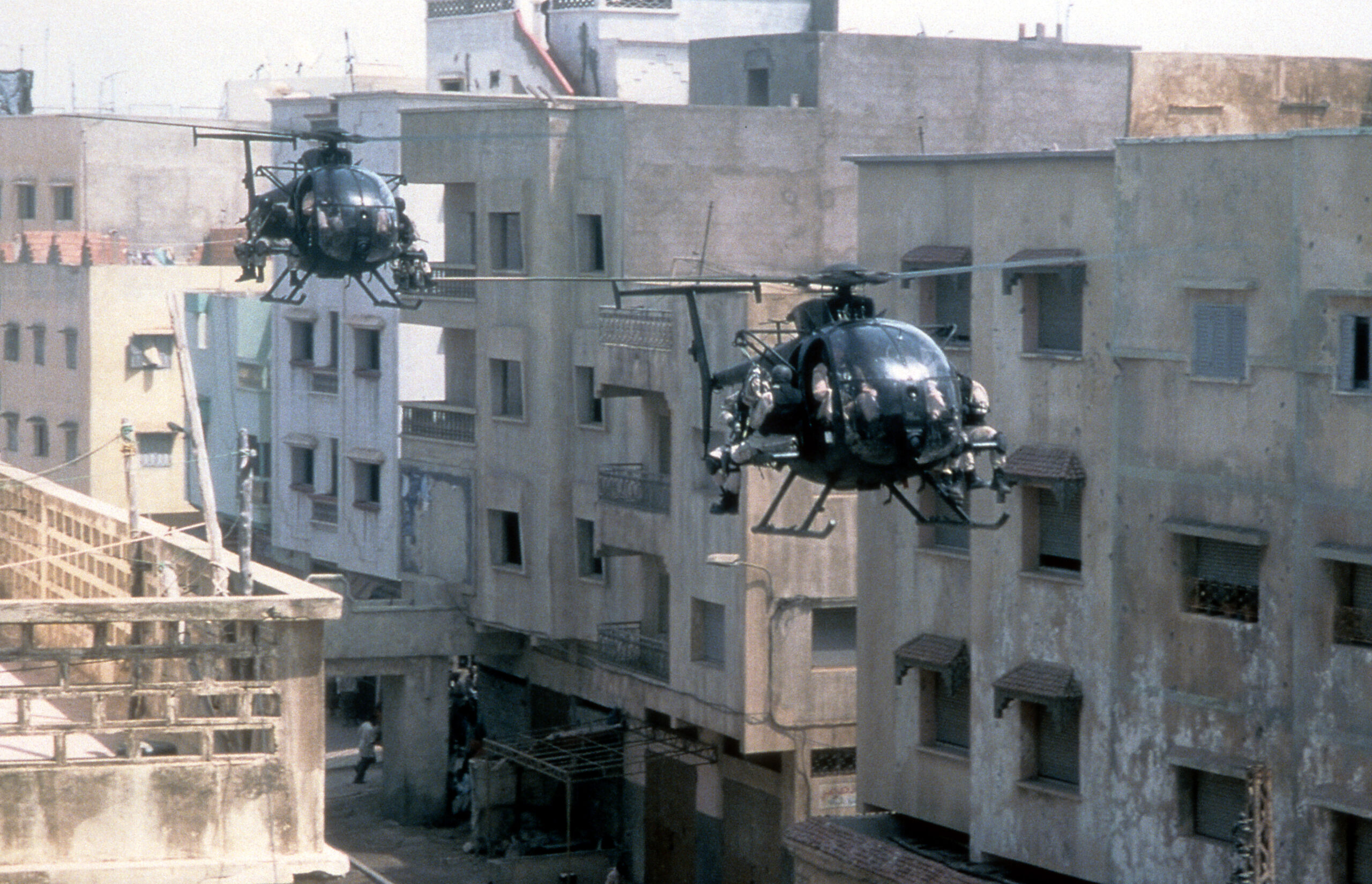Black Hawk Down is a popular war movie that was released in 2001 but remains a topic of discussion over two decades later. It follows a United States’ elite task force with a special mission in Somalia; the soldiers are tasked with destabilizing the local government and carrying out humanitarian efforts. Thanks to the use of raw imagery from widely acclaimed director Ridley Scott, Black Hawk Down stands out from other war movies of the era, even receiving the Academy Award for Best Film Editing in 2002. It also boasts an impressive cast with the likes of Ewan McGregor, Josh Hartnett, Orlando Bloom and William Fichtner. Despite the fantastic storytelling, the authenticity of the movie has been called into question as viewers wonder if Scott’s masterpiece is a true story or not. In their new Surving Black Hawk Down docu-series, Netflix examines exactly this.
About Ridley Scott’s ‘Black Hawk Down’ Movie
Technically, Black Hawk Down is a very true story. The gritty movie is packed with action as it depicts The Battle of Mogadishu. Even though the battle and the general circumstances are true, some of the characters are not named after actual soldiers. Despite this, it is considered a true account of the historic and unexpected fight between the United States and Somalian militia members. Although the movie does not include that much political context, the circumstances of the battle are important.
Due to the Somali Civil War, there was political unrest throughout the country at the time. Food shortages and drought afflicted the people of Somalia as a result. In an attempt to resolve humanitarian issues and aid the people of Somalia, United Nations peacekeepers were sent into the country, although this seemingly only made things worse. After a conflict with Mohamed Farrah Aidid, the Somali National Alliance leader, the military intended to capture him.
U.S. forces were supposed to strike on Oct. 3, 1993 to capture Aidid, but things went south for them quickly. Of course, Black Hawk Down masterfully depicts this part of the true story. Two U.S. military helicopters were shot down by grenades propelled by Somali forces. This led to an all out fight which lasted overnight and resulted in hundreds deaths. But the event, which is referred to as a military disaster, technically lasted less than a day, ending on Oct. 4, 1993.
Small Differences Between On-Screen and Real Life
Most of the occurrences of The Battle of Mogadishu are depicted pretty accurately in the movie, excluding the heroic tone. While Black Hawk Down depicts the conflict and the strife of American soldiers, it is a fictional movie with time constraints so cinematic decisions were made. There were hundreds of men deployed to Somalia for the task but only a portion of them are represented on-screen. The movie depicts around 20 men and unfortunately does not represent the plight of Somali fighters or local residents. This has largely gone unquestioned until recently since viewers are more curious about the circumstances that led to the battle.
What’s So Controversial About Scott’s ‘Black Hawk Down’?
The Black Hawk Down movie has more recently been considered controversial due to the way the events were depicted. This movie takes on the point of view of the U.S. soldiers but fails to go beyond that. It was also released around the time of the 9/11 attacks so public reception likely was impacted by that real life event. Having such a limiting view, especially in a war film, can greatly impact viewers’ interpretation of historic events. In the example of Black Hawk Down, the lack of Somali representation or point of view created an extremely biased account of the battle.
New Netflix Docu-Series Brings More Truth To Light
These controversies are why a new docuseries has endeavored to capture the Black Hawk Down true story by including multiple perspectives. Surviving Black Hawk Down is a new three part series which is streaming on Netflix. Viewers who are curious about how Scott’s 2001 project overlooked facts will be glad to know the new docuseries goes into much more detail. For example, viewers can learn about how less than 20 Americans were killed while upwards of 300 Somalis lost their lives in the battle.
It includes interviews with both American and Somali survivors of the events speaking about their experiences. By speaking with both sides of the conflict, the Netflix docuseries does the situation justice, giving a platform to those who had previously been silenced or unheard with the release of Black Hawk Down. This overdue series is especially important since there was a disproportionate amount of Somali casualties and very little media coverage about that. Military and history buffs can appreciate this journalistic investigation of the tragic events that impacted so many lives.

